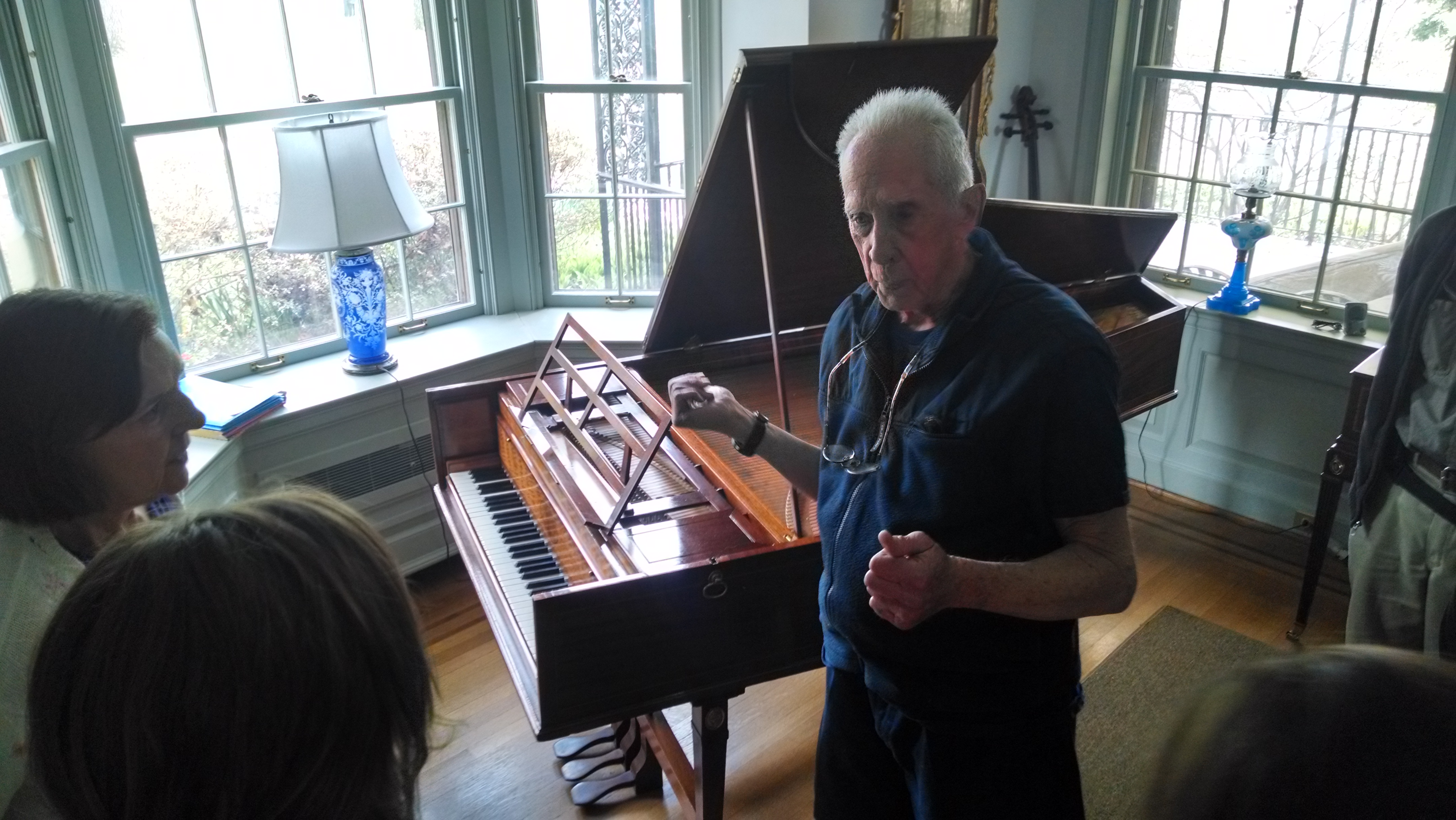 Elizabethtown College students of Dr. Justin Badgerow, assistant professor of music, had the unique opportunity not only to visit the home of Charlie Wilson, a private collector of historical keyboard instruments in York County, but to play early classical music on fortepianos, harpsichords and spinets.
Elizabethtown College students of Dr. Justin Badgerow, assistant professor of music, had the unique opportunity not only to visit the home of Charlie Wilson, a private collector of historical keyboard instruments in York County, but to play early classical music on fortepianos, harpsichords and spinets.
Badgerow started playing piano at the age of six and focused on performance and teaching throughout his undergraduate and graduate studies. “I enjoy performing music of all types and especially from historical eras. The more music I have learned from earlier centuries, the more I am interested in exploring the instruments and historical styles and trends from each period,” he said.
Based on his own interest in historical styles, he pursued getting his own harpsichord, a precursor to the piano. It was here he first learned of Wilson’s collection of keyboard instruments. “A local man named Joseph Osborne helped get the harpsichord in proper playing condition and taught me a lot about these instruments,” said Badgerow. “He mentioned in passing that he knew a man in York named Charlie Wilson that had an amazing collection of historical keyboard instruments, including harpsichords, spinets and fortepianos. Soon, Mr. Wilson and I spoke and he invited me and my colleague Debra Ronning and the E-town students to visit his home.”
While there, the students learned about the history of keyboard instruments and got a better idea of keyboards from the 17th and 18th century. This opportunity was especially exciting for the college musicians because Wilson allowed the students to play any instrument they wished. “The collection was like visiting a museum but even better since we actually could touch and hear the instruments,” said Badgerow. “While there are several historical keyboard collections in the country for visitors to view, I only know of two others (in California and Massachusetts) that allow visiting musicians to actually play the instruments!”
The collection was like visiting a museum but even better since we actually could touch and hear the instruments.” –Dr. Justin Badgerow
Badgerow said that for him and the students, it was truly a revelation to sit at an instrument nearly identical to some used by the famous early composers such as Bach, Handel, Haydn, Mozart and Beethoven.
Samantha Keynton, a rising senior music major, said she appreciated being able to get actively involved by playing her own repertoire on instruments that they would have played during the time the music was written. “I was also impressed in how knowledgeable (Wilson) was on the keyboards in regards to construction and time period they were used in.”
Kory Hilpmann, rising sophomore music education major, also was impressed with the interactive opportunity. “They were truly a sight to see, and the most memorable and wild part of the trip was that we could actually sit down and play any one of them, while a museum would have only allowed us to take pictures and maybe hear someone else play them,” he said. “But to sit down and feel the difference textures and action on each keyboard was so cool.”
Badgerow and his students took note that the feeling of the keys was different from that of a modern piano, as each instrument has its own unique tone color or sound quality. “Now when the students play these works on a piano, their imagination can be drawn back to when they felt and heard these instruments just as the composer would have experienced them.”
Badgerow hopes that with this trip, the students now have a richer understanding of the development and history of the piano. “Mr. Wilson is a very generous man and has graciously asked us to return in subsequent years, which we plan to do!”

